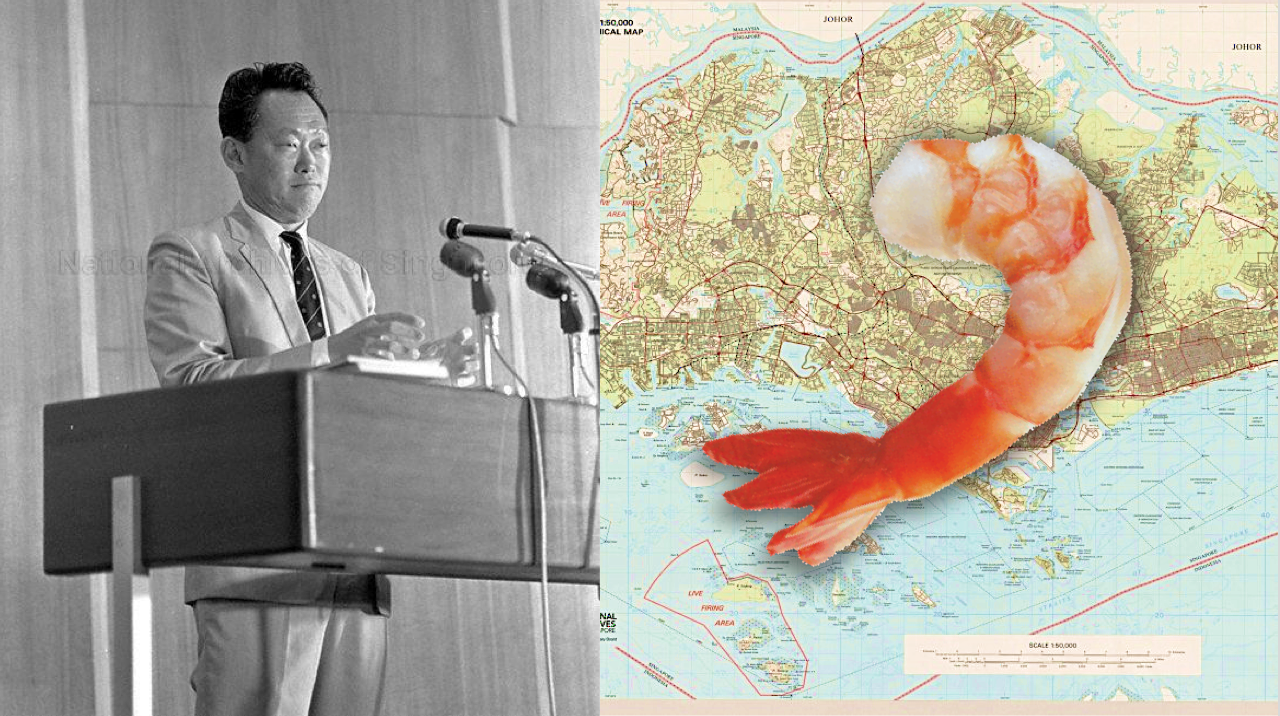Singapore today is renowned for having diplomatic ties with countries all over the world regardless of their size or governing ideologies.
Back in 1966, the first prime minister of Singapore Lee Kuan Yew understood that Singapore was reliant on relations with others if it were to have any chance.
However, even though these relationships have been and are instrumental to our progress, developing diplomatic ties alone is necessary but insufficient.
Singapore had to build up its capabilities, which consisted of forming a credible military as a deterrence.
By drawing an analogy to being a "poisonous shrimp", Lee described what Singapore had to become in order to survive in a sea of big fishes.
Consider this Singapore's idea of defence-signalling.
LKY speech in 1966
In 1966, Lee Kuan Yew gave a speech at the University of Singapore speaking about Singapore's place in the world.
In his speech, he quoted a Chinese proverb: "Big fish eat small fish; small fish eat shrimps".
There are different types of shrimps, he said. Some develop defence mechanisms while others are poisonous: "If you eat them, you will get digestive upsets."
Given the size of other countries and their military capabilities, Singapore was merely a shrimp in the global sea.
According to him, we had to at least become a poisonous shrimp. If not, we may very well be absorbed by the "bigger fish".
Political context at that time
Shortly after Lee made that speech, National Service started a year later in 1967.
As a newly-independent nation that was two years old, Singapore experienced great vulnerabilities that necessitated a citizen army.
And on top of that, political vulnerabilities with our neighbours -- such as Konfrontasi with Indonesia and separation from Malaysia -- fuelled our insecurity.
A solution to this precarious position was for Singapore to build up a capable military force by relying on whatever resources available to us.
The goal, ultimately, was to show Singapore is capable of retaliation and to deny the success of an offensive attack.
[related_story]
Deterrence evolved to other forms
While the poisonous shrimp posture raised the cost of any offensive against Singapore, it still meant that significant damage might be incurred by us.
To ensure our survival, we had to constantly adapt.
In the 1980s, Singapore's military strategy evolved to emphasise pre-emptive strikes.
And subsequently, with the development of the 3G (Third Generation) SAF in the 21st century, the defence strategy was refined once again.
By honing military superiority on all fronts, we are better primed to handle with both conventional and unconventional military threats effectively.
Top photo composite image from NAS.
If you like what you read, follow us on Facebook, Instagram, Twitter and Telegram to get the latest updates.
